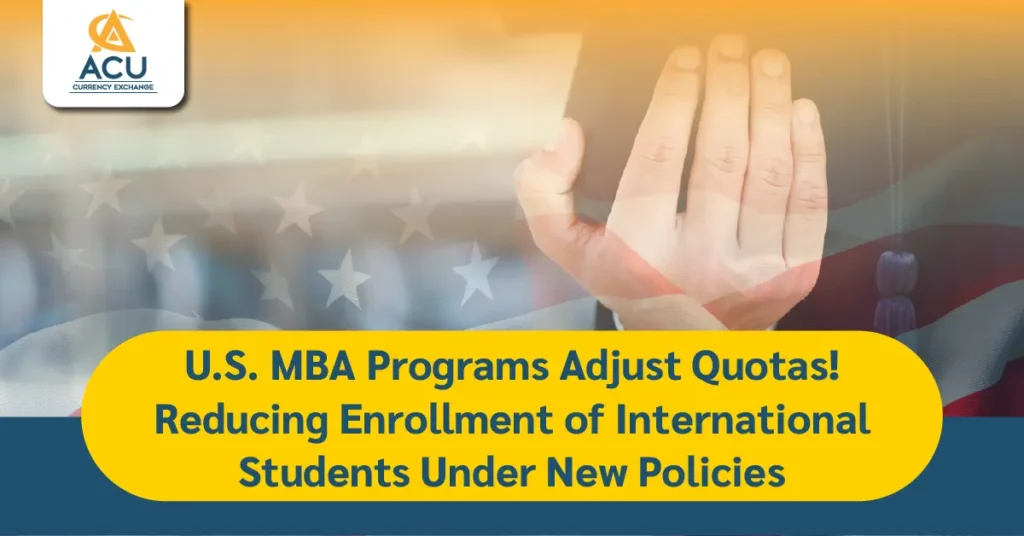U.S. MBA Programs Adjust Quotas! Reducing Enrollment of International Students Under New Policies

Currently, studying an MBA in the U.S. is undergoing significant changes as many universities are beginning to reduce the number of international students admitted, in line with the “America First” policy of the U.S. government, especially during the presidency of Donald Trump. This has involved cuts in financial support and stricter visa regulations to limit the number of immigrants and international students.
According to data from the Graduate Management Admission Council, in 2026, international students accounted for 61% of all MBA applicants in the U.S., which has been a significant source of income for universities. However, in recent years, universities have noticeably reduced the number of international students. The university that saw the largest reduction was the Scheller College of Business at the Georgia Institute of Technology, which cut its proportion of international students by more than one-third, from 37% to 24%. Other universities, such as the Tepper School of Business at Carnegie Mellon University and the Darden School of Business, have also reduced their international student enrollment.
Having international students in MBA classrooms provides a diverse learning environment, where students can learn from peers with different business backgrounds, which helps broaden their understanding of business. Additionally, international students help fill the gap left by a declining number of American students pursuing graduate degrees, as international students pay full tuition fees, benefiting universities financially.
However, reducing the number of international students could make U.S. universities less competitive globally, especially with strong competition from universities in Europe and Asia, like INSEAD and London Business School. Additionally, the U.S. job market could face a shortage of skilled workers, as many international students who graduate from U.S. programs choose to stay and work there, especially in business, technology, and innovation.
Another concern is that it may become harder for international students to find jobs in the U.S. after graduation, particularly with the OPT (Optional Practical Training) program, which allows international students to work in the U.S. for up to 3 years, with an additional 2 years if they are in a STEM field. This program may be limited or reduced in scope in the future. At the same time, the H-1B visa, which allows international students to work in the U.S., has been a topic of discussion regarding the employment of Americans, making the future of this visa uncertain
On the other hand, international students who face restrictions on working in the U.S. may choose to pursue further studies in other countries, such as Canada, the UK, Singapore, or China, which may offer more opportunities for international students.
The situation for international students wanting to pursue an MBA and work in the U.S. is becoming increasingly uncertain due to the reduced number of international student admissions and policy changes that could impact post-graduation work opportunities. However, this could create opportunities for other countries to attract international students to study there instead.
Reference
- Popular tags | MBA
About the Author

ACU-Exchange
We are committed to providing the best foreign currency exchange experience and customer satisfaction to meet the needs of Thais who want to travel abroad and foreigners who come to continue their studies or work in Thailand.



